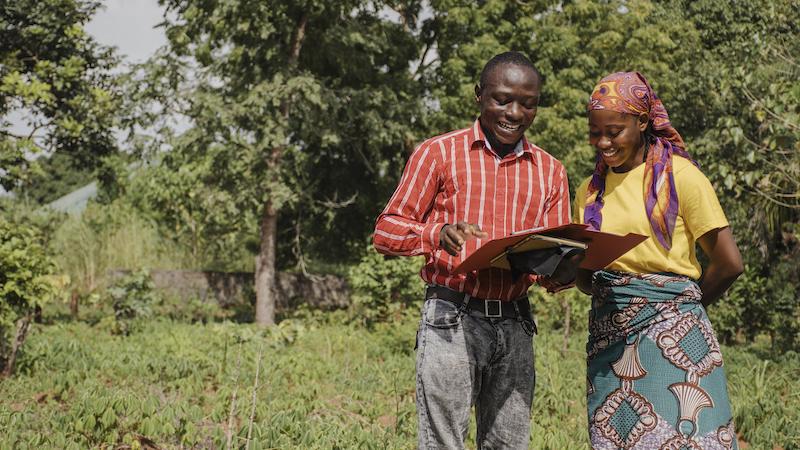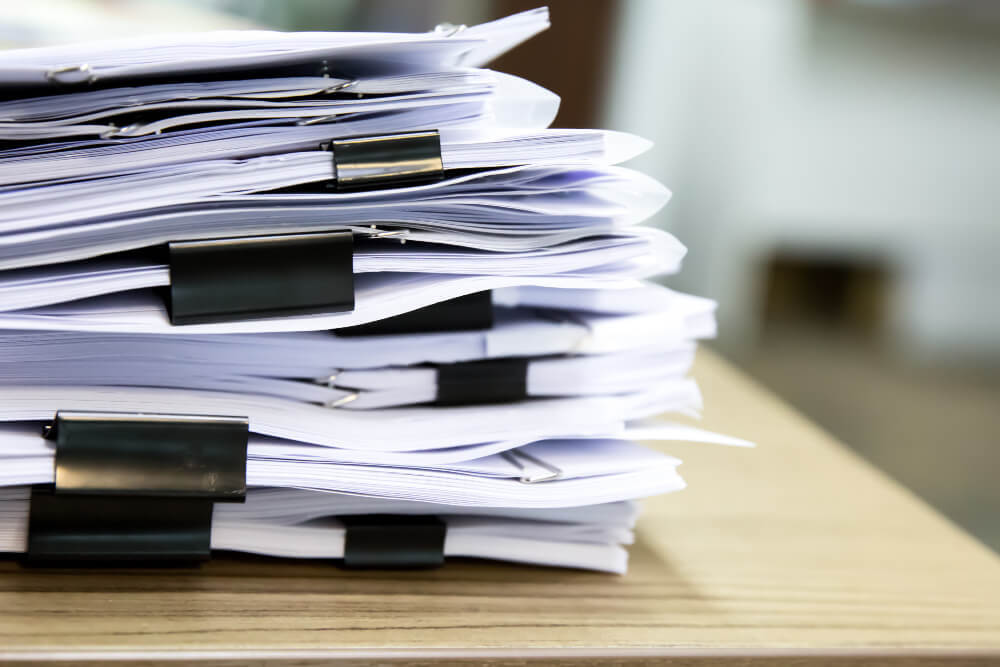Deforestation is destroying tropical forests in Ivory Coast at a faster rate than in any other African country.
A West African economy rich for its biodiversity and home to thousands of endemic species just decades ago, the proportion of tropical forests has dwindled by 80% since the 1960’s. Today, less than 4% of the country is covered in rainforests.
And chocolate is largely to blame.
Ivory Coast is the world’s largest producer of cocoa, the raw product of chocolate. A market-based economy reliant on agriculture, the so-called “world’s capital for chocolate” supplies to globally established brands such as Nestlé, Cargill and Mars.
Growing global demand, however, has led cocoa farmers to increasingly deforest parts of their lands to sustain cocoa production. Over time, as the lack of forest leads to nutrient loss, soil becomes less fertile and yields reduce, leading to a never-ending quest for new plots of lands. With most fertile grounds located in forested areas, degradation has also extended to large patches of protected forests.
But demand and supply pressure are not the only factor driving illegal sourcing methods. In a nation where 60% of the rural population lives below the poverty line, cocoa farmers have no choice but accelerate deforestation to maximise production, due in large part to low economic incentives.
While an estimated 2 million farmers in West Africa grow cocoa, the majority depend on a complex network of traders for market access. Peasant farmers, victims of middlemen exploitation, are rendered perpetually poverty-stricken and debt-ridden. Despite producing more, cocoa farmers earn an average of just $0.78 a day, or less than 4% percent of an industry worth an estimated annual $100bn.
In addition, an approximate 40% of deforestation is carried by workers subjected to modern slavery, including child labour.
.jpg)
Unreliable data on supply chains - including untraceable information on ethical sourcing of labour risks, makes it difficult to distinguish ‘good’ from ‘bad’ cocoa.
Yet, the industry is witnessing a resurgence in innovation-driven forest preservation projects, with promising results. In the Mé region of southern Ivory Coast, FLRchain together with UK non-profit Gaiachain Lab and the International Union for the Conservation of Nature (IUCN) are trialling sustainable cocoa sourcing and producing techniques in a REDD+ pilot involving over 1 million cocoa farmers.
The joint project aims to “put the emphasis back on cocoa farmers”.
Via the FLRchain mobile app, farmers are able to register the details of their farm and practices, hence allowing their products to be traced throughout the supply chain. The tool is built on Alogrand to integrate a digital, fraud-resistant and decentralised approach.
Designed to be “as low-tech and cost-effective as possible”, the tool is especially suited for off-grid, impoverished, rural locations. The approach effectively empowers traditionally disenfranchised smallholders with the resources to differentiate their merchandise from unsustainably sourced products, which are still flooding the market and driving deforestation.
Satellite imagery and unique identification capabilities further enable farmers to digitally prove sustainable credentials, with the option to integrate multiple points of evidence including where a produce was sourced, how it was harvested, stored, processed and distributed.
Rapid technologies, including sensor technologies, may also help accurately assess material, lifecycle and overall product quality.

The richer the data and more transparent the chain, the more confidence traders, manufacturers, and ultimately consumers have that the chocolate they produce, sell or consume came from a sustainable source.
More importantly, farmers will be able to sell their data to companies with zero-deforestation commitments through applications like FLRchain. This free, easy-to-use “marketplace” will maximise incentives for data provision and facilitate climate-friendly practices.
By helping farmers access markets and differentiate their products from illegal sourced ones, traceability tools also empower communities to be in the front seat when negotiating prices. It gives disenfranchised farmers a fairer deal against exploitative middlemen and retail chains that dominate the market.
Ultimately, enhancing socio-economic welfare effectively incentivises farmers to fight deforestation.
Building on the above success of its forest restoration projects in Ivory Coast, FLRchain and the Algorand Foundation have expanded their reach to carry out preliminary field testing with target beneficiaries in rural Uganda.

Improving traceability may also save native species, including indigenous ones. Most native species uniquely come from particular areas found nowhere else in the world.
In the case of cocoa, up to 70% of the world’s supply is produced by 2 million farmers across a single belt stretching from Cameroon to Sierra Leone, with Ivory Coast and Ghana being the first and second biggest exporters.
Native species, most of which indigenous, range from wild-harvested fruits to cultivated saltbush to cosmetics, and bear cultural importance for communities, with totems or spiritual significance often attached to these.
This is where traceability steps in: it helps identify, classify and protect what constitutes a native or indigenous crop ledger, specifically in an agricultural industry where there is little knowledge on these species. Traceability tools also support communities by enabling them to promote native species in their own language, including uploading and recording the cultural storytelling behind their products onto apps with a global reach.
Finally, suppliers and consumers alike may wish to see evidence of the authenticity and premium quality of native and indigenous products, including traditional practices and production methods.
Such critical information can be uploaded on Interu, iov42 digital traceability system that supports product quality assurance, trust amongst stakeholders, and data sharing. Interu is currently supporting organisations across public and private sectors, from smallholder cooperatives, auditors, certification bodies to large-scale operators with a global footprint in advanced and emerging markets.
.jpg)
In Ivory Coast where deforestation remains rife, environmental preservation must go hand-in-hand with sustainable development in rural communities.
Smallholder cocoa farmers as well as native and indigenous communities play a critical role in first-mile supply chain transparency, including reducing deforestation, illegal degradation of protected lands and forced labour, which typically occur at the sourcing level.
On one hand, traceability offers a convenient service for marginalised rural communities to differentiate sustainably produced cocoa and shifting supply chain dynamics for the benefit of forests and farmers. Ultimately, unlocking socio-economic benefits for farmers and incentivising them to fight deforestation, a “first-mile” approach to chain transparency supports corporate zero-deforestation ambitions and consumers.
Traceability must not only promote innovation, but also focus on localised experiences to ensure solutions tailored to community needs. This means reconciling growing market demand with economic justice and social welfare, especially for vulnerable communities. Centering rural and indigenous stewardship at the heart of deforestation efforts, including integrating their knowledge of the nutritional and therapeutic value of native species, will be crucial in informing effective climate-smart solutions.
Public authorities and corporations must not turn a blind eye either. Deforestation remains rife in areas associated with commodities such as cocoa. In 2017, the 10 largest chocolate producers pledged to end forest degradation in the cocoa supply chain. Similarly, consumer awareness can drive change: as consumers seek out native products, a growing proportion is turning to brands that provide a readily available history of products, from source to end-user.
When it comes to sourcing commodities, “the exchange is unequal” observes Dambisa Moyo, head of economic research at the World Bank. Economic growth in “advanced” economies relies on large net appropriation of resources and labour from “less developed” countries, extracted through price differentials in international trade and at the expense of local communities.
In 2015 alone, the Global North net appropriated from the South 12 billion tons of raw material, 822 million hectares of land and 392 billion hours of labour, with $10.8 trillion - enough to end extreme poverty 70 times over.
Thanks to Interu, iov42 aims to act as an essential stepping stone in achieving legality and sustainability. Digital traceability systems of this kind can help reconcile biodiversity challenges, economic growth and social welfare, with positive implications in continents like Africa, where 1 in 4 people in the world will live by 2050.
Get in touch today and learn how Interu can help you achieve your traceability goals.





